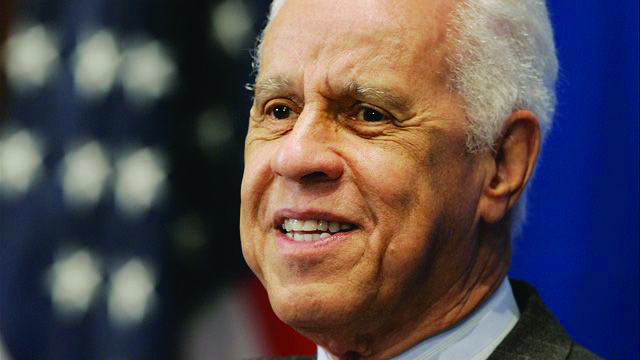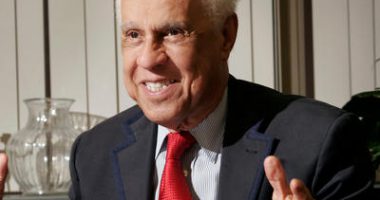The last several years in America, we have seen leadership in government, federal, state and local, come under increased scrutiny.
I have long recognized that the people are always ahead of the “leaders”. We were scheduled to observe the 30th Anniversary of my being elected the first African American Governor in the nation’s history. That event has been postponed; hopefully, it will take place in the fall. We had drawn from stellar participants for panel discussions, relative to many issues affecting government. Education, housing, employment, healthcare, and the justice system, were to be discussed along with other subjects; the audience, as usual, was invited to participate. One of the things I was interested in examining was the political leadership representing the African American community.
The numbers of those who have been elected and appointed to leadership positions has increased exponentially. What is the relationship between these officials and the people in the community?
I recently had a conversation, at their request, with a person of color seeking the Democratic nomination for Governor of Virginia in 2021.
I was interested in ascertaining what kind of relationship existed with the people and elected officials. How the mindset of those officials translated into leadership, advocacy, and representation of the people was of greatest concern. It caused me to think of some of the things that I had experienced in my journey.
I, along with, others, organized the Virginia Democratic Black Caucus in 1977. We were responsible for increasing the number of African Americans serving on the District committees. We advocated for an African American woman, Ruth Harvey Charity, to be the first African American woman to serve on the Democratic National Committee; Ben Lambert, became the first African American man to also serve. We supported Jessie Rattley to be the first African American chairwoman of the party. National and State Conventions were made more accessible to African Americans, women, etc.
I remained the chair of that committee until I was elected Lt. Governor. I also formed the Legislative Black Caucus of Virginia and was also its first Chairman.
Both groups met regularly; Dr. Calvin Miller, former Dean of Humanities, Virginia State University, was the Executive Secretary and kept constant communication with the members. He and I met weekly as I was an Adjunct Professor in political science at the University. We conducted regular meetings with members from across the state. Our group made proposals, adopted resolutions, and publicly outlined our concerns that represented the issues that the people had shared with us.
With this in mind, I asked the person seeking the nomination if there was a current Black Democratic Caucus and was told, “Yes there is, but local NAACP’s have taken over the job of communicating with the ‘people’.” I then asked what role and responsibility does the Democratic Black Caucus have, and was told that they contact the Legislative Black Caucus to stay in touch with each other.
I then asked why the elected African Americans, almost without exception, all supported the failed Navy Hill $1.5 billion coliseum project in Richmond, even though false, and proven illegal, promises had been made to the minority population. I was told that the “people“ thought the immediate addressing of education was more important, thereby causing its defeat, by both city and state legislative bodies.
Additionally, Mayor Levar Stoney expended millions for unapproved plans, dollars that could be approved for laptops for student instruction, personal protective equipment (PPE) and accessibility and availability for Covid-19 testing.
We have yet to hear from the mayor relative to the aforementioned and needed budget requests, and revisions, which are crucial and absolutely necessary.
I am detailing these events to illustrate the seeming lack of connection between the people and their elected representatives.
I sponsored the law for single-member districts in Virginia, increasing the number of African Americans in the legislature. Though it was opposed by some African American legislators, it became law. As Governor, I created a district, approved by the Justice Department, enabling the first African American to be elected to Congress, though it was opposed by some of those same “leaders”.
As Governor, I made it possible for women to be admitted to Virginia Military Institute (VMI), as well as created a Corp at Mary Baldwin College, despite objections from the Democratic Attorney General, a woman, who also sued me and my administration three times; she lost all three lawsuits.
Some people will never accept you on their team, it’s our responsibility to say, we ALL play or we don’t have a “team”.
I have had discussions with friends and associates from around the nation, who feel that while we may have gained in numbers, we still may need to more aggressively address the issues raised by James Baldwin in his celebrated debate with William F. Buckley at Cambridge in 1968.
The people don’t change, the leaders do.
Stay tuned.








